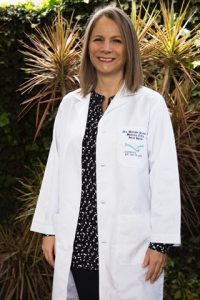For more than 60 years, the world has recognized the need for pediatric critical care (PCC). Today, most low- and middle-income countries (LMICs) still lack access to pediatric intensive care units (PICUs) and specialists, resulting in high rates of morbidity and mortality. These disparities result from several infrastructure and socioeconomic factors, chief among them is the lack of trained PCC and emergency medicine (PCCEM) frontline providers. In this seminar, we describe a continuing medical education model to increase frontline PCC capacity in Ecuador. The Laude in PCCEM is a program created by a team of Ecuadorian physicians at the University San Francisco de Quito School of Medicine. The program is aimed at providers with no formal training in PCC and who, nonetheless, care for critically ill children. The program resulted in stronger, more cohesive PICU teams with improved resuscitation times and coordination during simulation rounds. In hospitals that implemented the program, we saw decrease PICU mortality rates. Our aim is to identify the opportunities and challenges learned and to offer lessons for other countries that use similar models to cope with the lack of local resource availability.
Lessons from the Design and Implementation of a Pediatric Critical Care and Emergency Medicine Training Program in a Low Resource Country – The South American Experience
Seminar Downloads
 Dr. Grunauer is the Dean, the Director of Critical Care Areas, and a full-time professor at the Universidad San Francisco de Quito Medical School in Quito, Ecuador; the founder, Academic Director, and an attending of the Pediatric Intensive Care Unit of the Hospital de los Valles/Universidad San Francisco de Quito; and a Visiting Faculty Member at Johns Hopkins University. She is also the director of Ecuador’s Advanced Pediatric Life Support education program. Dr. Grunauer has dedicated thousands of hours to improving the quality of pediatric intensive and palliative care in Ecuador and other low resource settings through the development of continuing medical education, new models of care and PICU protocols, and innovative research studies to determine best-practices in these areas. She is a member of the highly prestigious Ecuadorian Academy of Medicine, a recipient of various local and international research grants, and the recipient of the 2016 Martha Bushore-Fallis APLS award for distinguished and innovative instructors of Advanced Pediatric Life Support. She is currently completing international research on pediatric palliative care practices, disaster relief, and palliative care education technology.
Dr. Grunauer is the Dean, the Director of Critical Care Areas, and a full-time professor at the Universidad San Francisco de Quito Medical School in Quito, Ecuador; the founder, Academic Director, and an attending of the Pediatric Intensive Care Unit of the Hospital de los Valles/Universidad San Francisco de Quito; and a Visiting Faculty Member at Johns Hopkins University. She is also the director of Ecuador’s Advanced Pediatric Life Support education program. Dr. Grunauer has dedicated thousands of hours to improving the quality of pediatric intensive and palliative care in Ecuador and other low resource settings through the development of continuing medical education, new models of care and PICU protocols, and innovative research studies to determine best-practices in these areas. She is a member of the highly prestigious Ecuadorian Academy of Medicine, a recipient of various local and international research grants, and the recipient of the 2016 Martha Bushore-Fallis APLS award for distinguished and innovative instructors of Advanced Pediatric Life Support. She is currently completing international research on pediatric palliative care practices, disaster relief, and palliative care education technology.